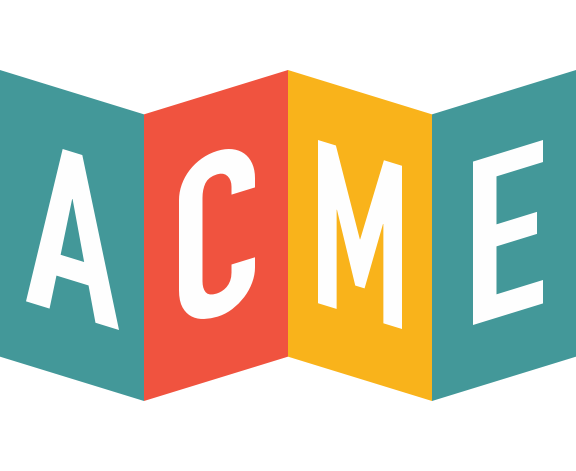
Why Writing a Great Cover Letter For a Grant Proposal is Important
A grant proposal is a set of documentation outlining your goals as an organization with the intent to receive financial support. When you’re writing a grant proposal, having a cover letter is a great way to sum up the intent of your grant and appeal to the grantor. While it may feel overwhelming at first, some basic guidelines can help make writing a cover letter easy. We’re going to go over the basics of drafting an effective and powerful cover letter that you’ll easily be able to replicate each time you write a grant proposal.
What is a Cover Letter For a Grant Proposal?
We’re already familiar with cover letters for employment, and a grant proposal cover letter isn’t much different. You want to identify key aspects of your proposal such as your mission statement, budget, and the main executives working on your project. Citing any data from your organization is important as well, especially any important milestones your organization has completed or is close to completing. Cover letters are typically the last thing you’ll write for a grant proposal as all the details regarding your proposal can be explained concisely. This makes it easier to avoid missing anything important or spending too much time fleshing out a cover letter before you’re done going over the grant proposal.
Aspects of a Compelling Cover Letter
Cover letters have the potential to make or break your grant proposal, so it’s important to stick to some basic rules. Put yourself into the shoes of your grantor, what would you want to see in a grant proposal that would make it appealing? It looks a little different for everyone, but there are three main points to cover when writing your cover letter:
- Nonprofit’s mission pairs with grantor’s passions. When a grant proposal is given to a grantor, it immediately becomes more interesting to them when they see things on a cover letter that aligns with their passions. For example, if you send a grant proposal to a family foundation created in honor of someone who passed from a rare illness, you can mention how your organization helps people experiencing that illness. Maybe it was cancer and you’re an organization that helps people get free wigs, it would be important to bring up how you strive to help those in need and how that lines up with the grantor’s passion for helping as well.
- Concise and clear. Clarity is vital to getting your point across. You should be able to explain exactly who you are, what you need, and what your plans are. This includes any relevant executives, who you’ve worked with in the past, and how you’ve currently helped your target community. As with any writing, it’s a good idea to break things down into chunks and outline what you need to say to avoid overcomplicating your cover letter. It’s easy to go off on tangents and overexplain things when you have no clear view of what you need to say, so make sure you loosely flesh out everything before you dive in.
- State goals if they were to be granted. Getting a grant is great, but you need to explain what the money you’re asking for will go to. This gives the grantor a clear vision of what your plans are for the future so they can feel good about the grant and be assured their money is going to good use. It also gives them insight into your process and makes them feel included in your organization. For example, you’d do this by saying something to the effect of “if given the $10,000 grant, we plan on building more tiny homes for the houseless people in our community”. You’d show the grantor how you came up with that number and what success you’ve had with the tiny homes you’ve built already.
Other Aspects of a Great Grant Proposal
Aside from the general ideas we’ve mentioned above for your cover letter, you’ll want to include some of these bits as well:
- Budget. One of the most important pieces of information to include in your grant proposal should be your budget. You should be detailed about how money comes in and out of your organization, showing your potential grantor how you handle money. Being vague about your budget can turn off grantors, making them think twice about giving to you.
- Plan of action. As we mentioned before, describing your goals is an important piece of your grant proposal. Going into more detail about your goals and what you want to do in the future helps paint a picture, showing your potential and drive to do more. It helps your potential grantor see your vision and it shows them you’re taking what you do seriously.
- Evaluation. Showing how you determine your success and your progress is yet another important piece to the puzzle. You can include testimonials from people or other organizations you’ve worked with, statistics and other hard evidence showing tangible proof of what you’ve done, or other grantors that are happy to let you mention them when reaching out for funding. It’s completely dependent on how you view your successes, but it’s important nonetheless to show how you measure the positive change in your organization.
- Basic information. This can be an oversight when you focus too much on your grantor and the task at hand. Talking about when you established your organization, how and why you started, your executives, and any other related information needs to go in your grant proposal as well. You should also include an appendix that has any important documentation, licensing, certifications, tax exemption status, and any press or community references. This will close out your grant proposal.
How a Great Cover Letter Sets the Tone For a Great Grant Proposal
A cover letter is like a teaser for what’s in store when you approach a grantor with your grant proposal. An effective cover letter should capture their attention while also quickly and accurately describing what you’re asking. While potentially challenging at first, the hard work you put into a cover letter can help create the change you want to see faster. Once you get the hang of it, you’ll be able to write powerful and concise cover letters in no time. As long as you’re clear about what you need and confident in your organization’s ability to get it done, you’ll have no problem making an excellent cover letter.

